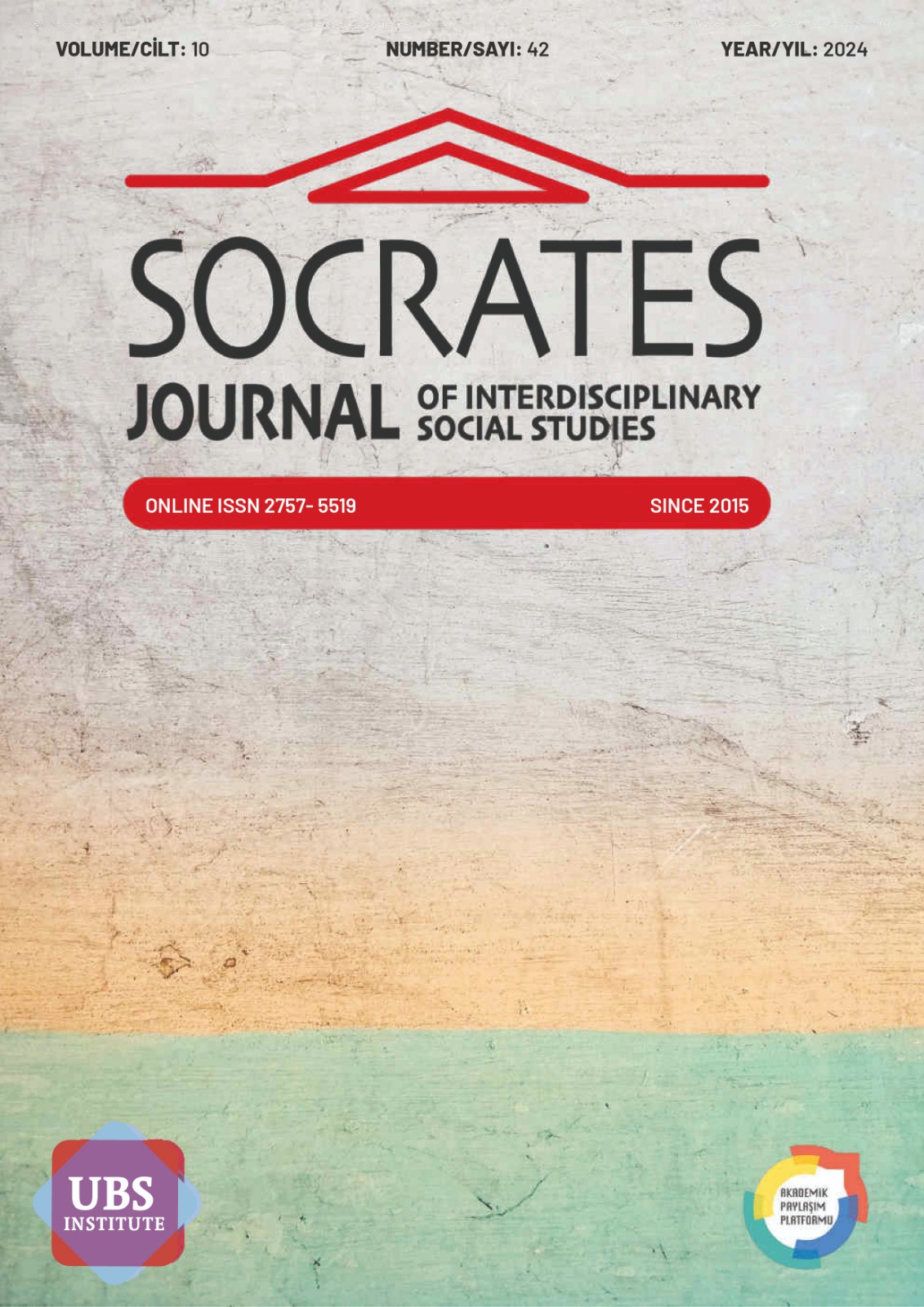“DEPREM VE TOPLUMSAL CİNSİYETE DAYALI ZARAR GÖREBİLİRLİK: KADINLARIN KATMERLİ DEPREM DENEYİMLERİ, HATAY, 2023” BAŞLIKLI MALTEPE ÜNİVERSİTESİ BİLİMSEL ARAŞTIRMA PROJESİ BULGULARI
MALTEPE UNIVERSITY SCIENTIFIC RESEARCH PROJECT FINDINGS TITLED “EARTHQUAKE AND GENDER-BASED VULNERABILITY: WOMEN'S MULTIPLE EARTHQUAKE EXPERIENCES, HATAY, 2023”
DOI:
https://doi.org/10.5281/zenodo.12598897Abstract
In the project, the gender-based vulnerability in the post-disaster period with women over the age of 18 in Hatay province, following the earthquakes that took place in Kahramanmaraş on February 6, 2023, and affected eleven provinces, and the increased burden created by the conditions that generate this vulnerability on women were investigated. Post-disaster human vulnerability categories, which Ünür (2021) stated as economic, social, physical, and environmental, were detailed and women's financial freedom, participation in employment, post-disaster clothing experiences, access difficulties in hygiene, reproductive and sexual health, caregiving and homelessness were discussed. The effects of ethnic and socio-economic structure, approach to disaster, and education were taken into account, as whether women were pressured to realize themselves, whether they were held responsible for compensating population losses (whether they were pressured to give birth to more children) was investigated, and it was tried to see who they thought was in control of what they experienced after the disaster and their resilience strategies.
For this purpose, in-depth interviews and focus group discussions were held with women over the age of 18 who experienced the February 6, 2023, Kahramanmaraş-centered earthquake in Hatay. It was concluded that intergenerational differences and going to the container city/staying at home after the earthquake had a great impact on the increased burden on women. The study, which took place in Antakya, İskenderun, and Arsus districts of Hatay province, was planned by taking into account the fact that these districts represent the differences of Hatay in terms of different sociodemographic, sociocultural, and socioeconomic aspects, and the participants were reached by the snowball method. It was determined that women who settled in container cities after the earthquake experienced more problems, and these problems were grouped under headings such as being squeezed into a narrow space, lack of social ties, decline in social norms (anomie), increased problems with children and sharing of domestic labour. In addition, the intergenerational burdens of women were examined in three different age groups (18-39, 40-64, 65 and above) and the context of post-earthquake loads, it was seen that women over the age of 65 and living alone had the most difficulty. It has been determined that the burden of people between the ages of 40 and 64 varies depending on the number of children they have/are responsible for caring for.
References
Altunoğlu, Y. Ç., Gülfidan, Ş., Yarar, B., User, İ., Demez, G., Kümbetoğlu, B., & Mozakoğlu, M. (2007). Depremden 5 yıl sonra Düzce ilinde değişen toplumsal, ekonomik ve kişisel yaşam. Erişim adresi: https://openaccess.marmara.edu.tr/entities/publication/d6facfbc-ee2a-4d58-a286-75a71ecca505/full.
Bademci, H. Ö., Warfa, N., Bağdatlı Vural, N., Karadayı, E. F., Yurt, S. ve Karasar, Ş. (2019). Teachers’ perceptions of an attachment-informed psychosocial programme for school children with social and emotional problems in Istanbul, Turkey. Journal of Social Work Practice: Psychotherapeutic Approaches in Health, Welfare and the Community. https://doi.org/10.1080/02650533.2019.1611550
Bademci, H.Ö. ve Karadayı, E. F. (2013). Working with street boys: Importance of creating a socially safe environment through social partnership, and collaboration through peer-based interaction. Child Care in Practice, 19(2), 162-180.
Bademci, H. Ö., & Karadayı, E. F. (2015). Attachment intervention through peer-based interaction: Working with Istanbul's street boys in a university setting. Children and Youth Services Review, 49, 20-31.
Bronfenbrenner, U. (1979). The ecology of human development: Experiments by nature and design. Cambridge, MA: Harvard University Press.
Demirci, K., & Avcu, T. (2021). Afet süreçlerinde kadın bireylerin yaşadığı sorunlar ve çözüm önerileri: İzmir ili örneği. Erişim adresi: https://dergipark.org.tr/tr/download/article-file/1638849.
Fania, T., & Ghemi, F. (2011). Implications of Vygotsky’s zone of proximal development (ZPD) in teacher education: ZPTD and self-scaffolding. International Conference on Education and Educational Psychology (ICEEPSY) - Social and Behavioral Sciences, 29, 1549-1554.
Jain, N. (2023). What is a Focus Group? Definition, Questions, Examples and Best Practices. Erişim adresi: https://ideascale.com/blog/what-is-a-focus-group/.
John-Steiner, V., & Mahn, H. (2012). Sociocultural approaches to learning and development: A Vygotskian framework. Educational Psychologist, 31(3/4), 191-206.
Karancı, N. A., Alkan, N., Akşit, B., Sucuoğlu, H., & Balta, E. (1999). Gender differences in psychological distress, coping, social support and related variables following the 1995 Dinar (Turkey) earthquake. North American Journal of Psychology, 1(2), 189-204.
Kasapoğlu, M. A. ve Ecevit, M. C. (2001). Doğu Marmara 1999 depreminin sosyolojik araştırması: Hasarları azaltma ve toplumu depreme hazırlıklı kılma. Ankara: Sosyoloji Derneği Yayınları.
Kümbetoğlu, B. (2008). Sosyolojide ve antropolojide niteliksel yöntem ve araştırma. İstanbul: Bağlam Yayınları.
Nakkula, M. J. (2009). Transforming self-control through peer relationship. Reclaiming Children and Youth, 17(4), 35-40.
Downloads
Published
How to Cite
Issue
Section
License
Copyright (c) 2024 Socrates Journal of Interdisciplinary Social Studies

This work is licensed under a Creative Commons Attribution 4.0 International License.


